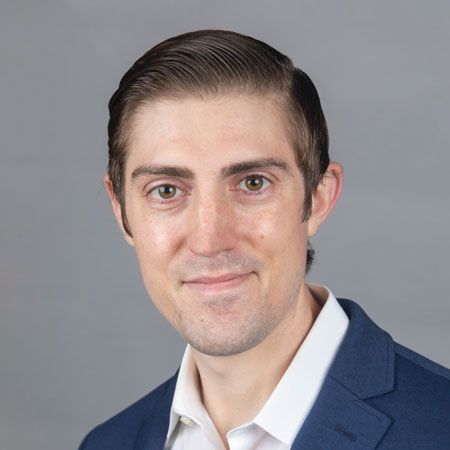Feb. 16, 2024

Congratulations to Andrew Kiselica, who was recently chosen for the Academy of Behavioral Medicine Research’s (ABMR) 2024 Early Stage Investigator Award.
The award provides early career behavioral medicine researchers with leadership training, mentoring and networking opportunities with other ABMR fellows and National Institute of Health program officials.
It’s the fourth recent award for Kiselica, who is an assistant professor in the Department of Health Psychology and director of the Clinical Evaluation and Research in Alzheimer’s Disease and Related Dementias lab. He was also named a Butler-Williams Scholar and an IMPACT-AD fellow, and he was selected to attend the Alzheimer’s Association Interdisciplinary Summer Research Institute (AA-ISRI).
“Each of these training programs provided unique opportunities to improve my ability to conduct research on aging and Alzheimer’s disease,” Kiselica said. “IMPACT-AD was focused on conducting clinical trials, Butler-Williams had a special concentration on inclusivity, AA-ISRI provided training specific to psychosocial research with patients with ADRD, and ABMR will have an emphasis on leading aging research.”
- The Butler-Williams Scholars Program is held each summer to provide researchers focused on topics related to aging with opportunities and training — including consultations with program officers with the National Institute on Aging.
- The Institute on Methods and Protocols for Advancement of Clinical Trials in ADRD (IMPACT-AD), is a comprehensive training program in clinical trials for Alzheimer’s disease and related dementias. The fellowship offered Kiselica mentored training in protocol development and guidance on serving as a principal investigator on ADRD trials.
- The AA-ISRI is an immersive five-day program for early career researchers in psychosocial care and public health who are interested in accelerating breakthroughs in dementia science. A total of 24 applicants are selected for the institute, which pulls together experts in the field for group sessions and individual mentoring.
Kiselica said he was motivated to apply for these awards after having initial successes receiving early career grant funding for his research on the use of commercial technologies, such as smartphones, in the care of people with Alzheimer’s disease.
His next goal is to obtain more significant grant funding (e.g., an R01 grant through the National Institutes of Health) to lead clinical trials of technology-focused interventions for people with Alzheimer’s disease and their care partners.